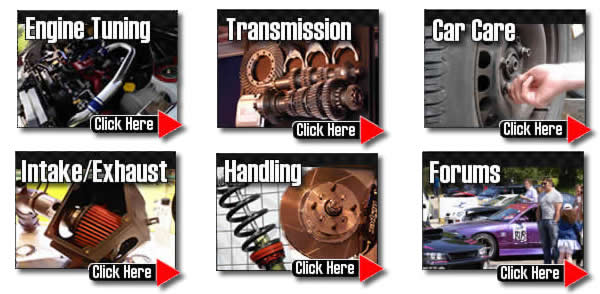Citroen DS4 Tuning
& DS4Crossover Tuning
"Thank you for reading my guide to DS4 Tuning"
A luxury DS branded car was very well equipped. The DS4 also led to the crossback version which offers more than a passing nod to the SUV brand.
The DS range was a significant freshen up of the Citroen lineup and appealed to a much younger car enthusiast.
The turbo models are the most rewarding to tune up but all engines are capable and respond well to the right modifications and upgrades.
Engine choices in the DS4 were the petrol engines (a collaboration between PSA and BMW) including 1.6 L I4 VTi, the 1.6 L I4 THP Turbo (155 or 200 hp) and the diesel options were the 1.6 L I4 HDi, e-HDI and (since 2015) BlueHDI Turbo-diesel and a 2.0 L I4 HDi, e-HDI and (since 2015)BlueHDI

The DS4 is a good car tuning project to play with. If you do your homework then you can create an awesome DS4 but don't be fooled there are lots of performance mods out there that will simply not suit it read our unbiased guides first.

Improving the handling for many tuners first priority in your DS4 tuning project. We suggest that you fit performance suspension and lower the car by 30-35mm. Larger drops require arch work - especially on models already equipped with performance suspension.
Top end power should be your overall aim on the DS4 with a nice fat peak torque band.
Sadly with smaller engine sizes you are wasting your time spending money on modifications, so if this applies to you get yourself an engine swap then apply the following mods.
Engine Tuning.
The following modified upgrades are usually fitted by our members, decide how far you wish to go in your tuning project before you get going.
- 1.6 L I4 VTi 88 kW (120 PS; 118 hp) 6000rpm
- 1.6 L I4 THP Turbo (155) 115 kW (156 PS; 154 hp) 6000rpm
- 1.6 L I4 THP Turbo ( 200 hp) 147 kW (200 PS; 197 hp) 5800rpm
- 1.6 L I4 HDi, e-HDI and (since 2015) BlueHDI Turbo-diesel 82 kW (111 PS; 110 hp) 3600rpm
- 2.0 L I4 HDi, e-HDI and (since 2015)BlueHDI 120 kW (163 PS; 161 hp) 3750rpm
Getting the correct grade of modified upgrade kits for your planned usage of the car is vital. Stage 3 motor sport mods just won't work well on the road hard to control in slow traffic.
Please watch our introduction Video tutorial to car tuning. Be sure to subscribe and support our new channel.
How to tune your car
- Improve the handling
Focus on Suspension improvements, such as coilovers and make sure the bushings are in good order and that the alignment is correct. Then focus on improving the brakes, with a big disk brake conversion kit and fast road brake pads.
- Remove restrictions
Focus on the intake and exhaust with filters being the common point of restriction in a tuned car. Intercoolers may also become restrictive on turbo engines so this may also need to be uprated.
- Burn more fuel & air
Increase the fuelling so it matches the air coming into the engine. The ratio is important so you need to improve the fuel pump and injectors, so the head mods, big valve conversions, fast road camshafts and forced induction upgrades extra supply of air is adequately met.
- Test and replace any weak parts
Weak areas are commonly the clutch, the turbocharger and pistons and crankshaft in a highly tuned engine. Makes sure these components will cope with your power aspirations.
- The Tune or Remap
A cars ECU controls the fuel, timing, spark and even the turbo in some cases, so to fully extract your gains you should remap the car last and this will fully release the power. Some cars are easy to map, and others require piggyback ECU's or aftermarket ECU's but this is the most vital step of your tuning project.
Modifying to Stage 1:
Lighter flywheel, Panel air filter, Remap, Suspension upgrade (drop 40mm DS4 or 50mm Crossover), Sports exhaust, Alloy wheels.
Modifying to Stage 2:
fuel pump upgrades, Power/Sport clutch, Ported and polished head, high flow fuel injector, Fast road cam.
Modifying to Stage 3:
Competition cam, Sports gearbox, Engine balancing, Internal engine upgrades (pistons/head/valves), Adding or upgrading forced induction (turbo/supercharger).
You should keep as much low end power as you can and aim to get a long power band across the rev range rather than a narrow top end power spike.
In this article we shall give a limited introduction to the best upgrades for your car, but we'd encourage you to spend some time on the site looking into the details of each type of performance mod.A fast road cam usually works out as one of the best NASP power mods you can do mechanically to your engine.
The intake and exhaust durations play a large part in your cars power band, but be careful here, getting this wrong can upset the idle and make the car impossible to drive in traffic. You'd need to follow a camshaft upgrade with other mods and finish with a remap to fully release the power gain.You will need to ensure that the engine is not starved of fuel so will need to pay attention to the fuelling.
Using high octane fuel is another option if you find you are suffering from detonation or premature ignition on your Citroen project after fitting other performance kits. To get sufficient fuel you may need to uprate the injectors on your engine. If have increased your fuelling with bigger injectors you will also need to get a bigger fuel pump to supply it.
Intake and Exhaust Tuning.
Now we move on to the intake and exhaust and ensure proper flow through the engine. Air induction kits are only beneficial to boost power if your air intake is restricted! Adding an induction kit to most standard 1.6 engines will see NO POWER GAIN AT ALL but the turbo engines appreciate freer intake, especially when remapped or with other mods.
If you have heavily modified your engine and it's need for air INCREASES DRAMATICALLY then an induction kit is the answer and will help remove this restriction. Induction kits can work well on turbo engines and larger engines (if supplied with a suitable cold air feed or air box), generally though we'd just recommend for DS4 engines you should just fit a high performance panel air filter preferably made from cotton.
Do not go with the biggest exhaust you can get this will slow the exhaust rate - the best for power gains are usually between 1.5 to 2.0 inches. It is the shape and material more than the bore size. Turbo engine exhausts need a good flow rate, and should avoid bends and seams.
Getting the cylinder head ported and polished will help get more air into each cylinder. This is definitely a job for a professional with a flow bench.
When you tune up your DS4 you will usally see that the standard clutch starts to complain so get an uprated clutch. NASP engines do not achieve big power gains if you remap them, unless you have done extensive modifications.
With turbocharged engines this is another story. A remapped turbo will give massive power gains and fully release the potential power of the engine.
Adding forced induction (through a supercharger kit) will see phenomenal power gains but this is usually too expensive to be cost effective. Turbos are often harder to add than a supercharger. Turbos give boost in increasing proportion to increasing engine speed and this can make mapping difficult.
Superchargers will give a boost which is proportional to engine speed so is simpler. To cope with forced induction you will usually need to decrease the engine compression ratio .
Alloy wheel upgrades.
Alloy wheels will help the brakes cool down and are usually less heavy than steel ones. Please note that although they can look cool on the DS4 large alloy wheels will actually decrease your performance. The larger you go the lower your acceleration will be - this to the change in your effective final drive ratio.
Although some people have with bigger wheels we would stick to a 17 inch rim size as the maximum.
We like the look of the jacked up DS4 crossback, so adding higher suspension and chunky off road tires really suit this model in our opinion.
For more information on Tuning your car please join us in our friendly forum where you can discuss DS4 options in more detail with our DS4 owners. It would also be worth reading our unbiased Citroen tuning articles to get a full grasp of the benefits and drawbacks of each modification.
Please help us improve these tips by sending us your feedback in the comments box below. We love to hear what our visitors have got up to and which mods work best for them on each model of car. Comments are used to improve the accuracy of these articles which are continually updated.
If you liked this page please share it with your friends, drop a link to it in your favourite forum or use the bookmarking options to save it to your social media profile.
Check out TorqueCars new YouTube channel, and see their awesome new content...
Feedback
Please use our forums if you wish to ask a tuning question, and please note we do not sell parts or services, we are just an online magazine.
Help us improve, leave a suggestion or tip
